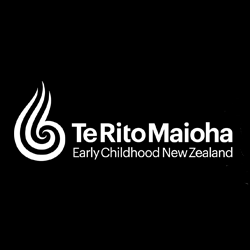
Developing an Authentic Samoan Lens
Status
Completed: 6 December 2011
Project Details
A small-scale project from Te Tara Puna Ora o Aotearoa, New Zealand Childcare Association (NZCA) focused on assessment practices in two Samoan early childhood education (ECE) centres in Christchurch over a period of six months. The study highlighted the importance of culturally-appropriate and culturally-responsive assessment practices in early childhood and resulted in a cultural conceptual framework.
Aims:
The research project aimed to:
- enhance the educational performance of initial teacher education providers
- improve student teachers’ formative assessment practices
- make Pasifika early childhood education more intentional in its learning focus
- ensure graduating teachers are better able to extend Pasifika children’s learning and development.
Methodology:
The methodology of the research project featured:
- participatory action research
- a consultation fono in Christchurch
- document analysis
- a literature review.
The research project featured four key research questions, including:
- how is assessment taught and learned in two NZCA initial teacher education programmes, the National Diploma of Teaching (ECE, Pasifika) and Diploma of Teaching, ECE?
- how is assessment practice learned in their tertiary programme implemented by Samoan student teachers and recent graduates in early childhood centres and supported by liaison and/or associate teachers?
- how does the teaching of assessment practice accommodate Samoan worldviews and cultural values and practices?
- how might the teaching of assessment for learning for Samoan children be improved? and how can teacher education related to assessment be reframed to accommodate Samoan worldviews, and cultural values and practices?
Participants were Samoan lecturers; associates and students involved in NZCA's National Diploma of Teaching ECE Pasifika or Diploma of Teaching ECE programmes; and Samoan graduates.
Team

Pauline Luafutu-Simpson
Project Leader
Te Tari Puna Ora o Aotearoa, New Zealand Childcare Association (NZCA).Status
Funding
$9,666.00 (excl GST)
Key Findings
Findings on how assessment is taught and learned in NZCA teacher education programmes
- The project found teaching of assessment within the two programmes differed slightly.
- Teaching assessment in the third year of the National Diploma (ECE, Pasifika) gave little time for students in the programme to become more familiar with assessment, which potentially disadvantaged the students.
Findings on Samoan student teachers and recent graduates’ assessment practices
- Interviews with two graduates after training highlighted growth in their understanding of learning stories and the value it had in assessing and improving on a child’s learning.
- Following training, graduates learned more about how to implement assessment processes and clearly understand the value and importance of working closely with parents in assessment matters.
Findings on leadership influence
- Leadership (team leaders) knowledge of assessment had a significant influence on the understanding and practice of graduates.
- However, it was difficult to engage in meaningful ways with an assessment tool or concept seen to be outside people’s worldviews and hence their comfort zone.
Findings on accommodating Samoan worldviews in ECE assessment
- Interviews highlighted differences in the approaches and levels of understanding and frustration around assessment and its implementation in Samoan centres.
Findings on improving the teaching of assessment for Samoan children
- The project highlighted the importance of culturally appropriate and culturally responsive assessment practices in early childhood.
- Samoan early childhood centres viewed ECE assessment practices to be imposed on them and detached from their realities and culture.
- Assessment needed to be clearly defined and explained in an appropriate way before exploring how it was then to be practised in Pasifika centres.
Findings on a new Fale Tele model
- The project highlighted the need to further develop and build on the Fale Tele model, a conceptual framework from which to view Samoan children and reflect on teaching and learning.
- It found a cultural framework such as the Samoan Fale Tele model would allow Samoan educators to consider and encourage the learning that is valuable from a Samoan view.
Key Recommendations
Develop culturally-appropriate assessment tools | New assessment tools for Pasifika centres should consider the importance of culturally-appropriate pedagogy and the cultural competence of trainers in the delivery. To get quality outcomes quality resources in all areas must be a given.
Develop and disseminate the Fale Tele model | The Fale Tele model developed through this research should be presented and discussed at staff hui so that lecturers at NZCA are better able to engage and deliver to students throughout NZCA’s degree programme. Additionally, this research and its model should be disseminated to Pasifika lecturers in other institutions for their consideration and use.
Set up effective leadership training for Pasifika centre leaders | A culturally-appropriate model such as the Fale Tele model is needed to challenge and engage leaders’ thinking around the value of assessment and the various ways of applied practice. If Pasifika centre supervisors, management and governance boards can clearly understand the significance and value of assessment, they will also see how new knowledge can be utilised within a Pasifika frame for the benefit of Pasifika children.
Enable Samoan ECE centres to bring their own language and understanding to assessment | Samoan ECE centres struggling with complicated Palagi concepts and technical ECE speak, will be better able to relate and practice authentic assessment of Samoan children if their hearts are engaged as much as their minds. Drawing from and building on their own understanding and cultural knowledge of child development is a more empowering place to negotiate new ways of learning in new contexts.
Support the development of an authentic Samoan assessment framework | Improving student teachers’ formative assessment practices will influence practice in the centres where they work. Development of an authentic Samoan assessment framework for use by early childhood teacher educators and teachers will have significance for the early childhood sector because it has the potential to achieve the best possible educational outcomes for Pasifika children and in particular young Samoan children.
This report seeks to investigate current teacher education methods, aiming to improve professional practice courses and teaching processes that specifically address the assessment of learning among Samoan children.
- 6 December 2011